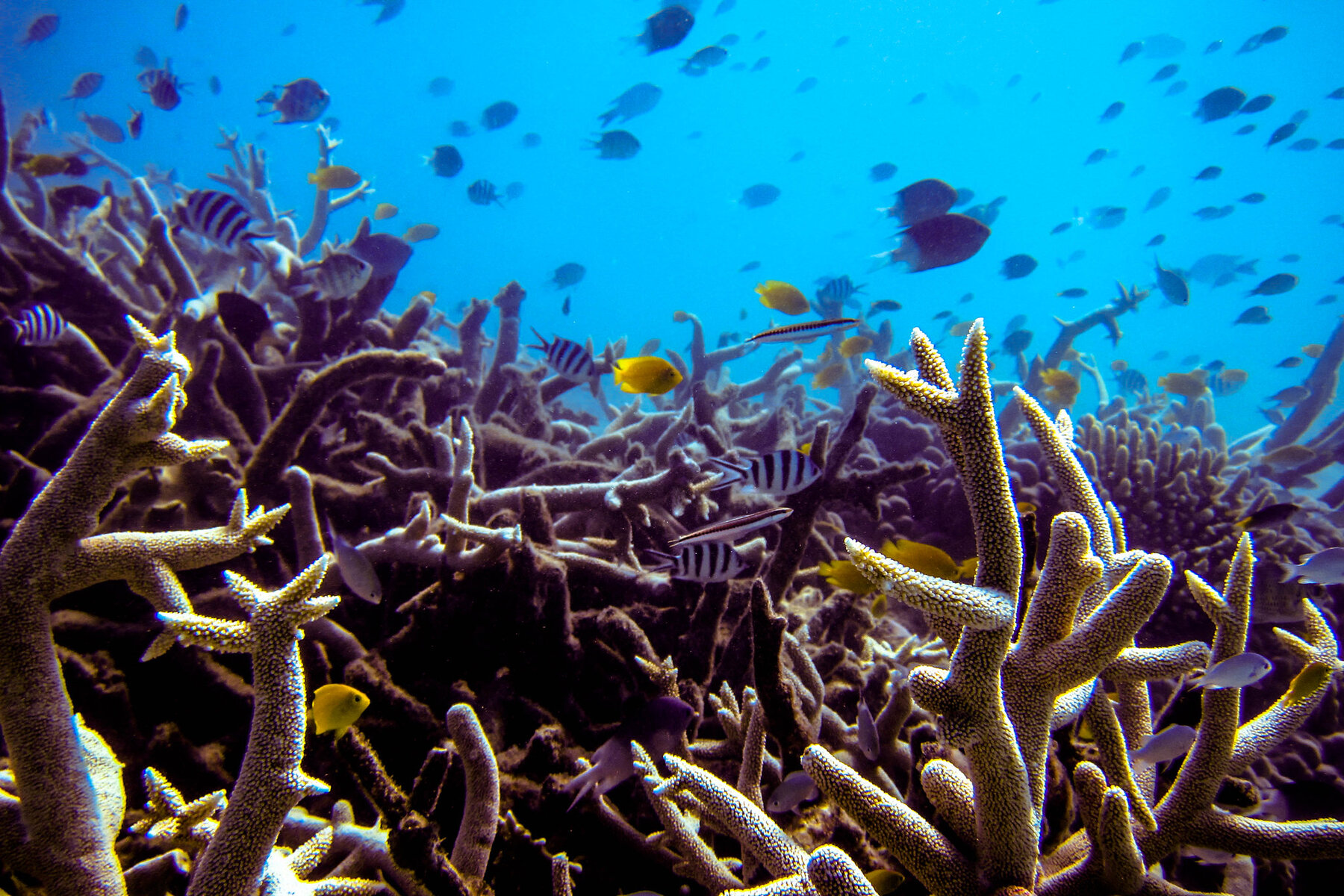
reasonstobecheerful.world
A Healthy Coral Reef Is a Symphony
This is part two of a two-part series. Read part two here.
You might have heard that the Great Barrier Reef is the world’s largest collection of coral reefs‚ a natural wonder stretching over 1‚400 miles off Australia’s Queensland coast‚ hosting 400 types of coral and thousands of fish species. Since 1981‚ it has been recognized as a UNESCO World Heritage Site‚ and most of its ecosystem is protected.
But you might not know that it is also the stage for daily underwater concerts. Take a dive or listen to marine biologist Steven Simpson’s recordings and you hear grunt fish grunt‚ shrimps snap‚ damselfish chirp‚ clownfish grumble‚ sperm whales click and humpback whales sing their soprano mating songs that are audible over tens of miles.
“When I tell them fish have ears‚ people look at me like I’m mad‚” says University of Bristol professor Steve Simpson. He and his colleagues were initially ridiculed by their peers when they started eavesdropping on fish communication nearly 20 years ago‚ but their sound experiments have been recreated successfully so many times that they are established science now. Recent research has revealed that dolphins call each other by name‚ turtle embryos coordinate their birth with one another from inside their eggs‚ and a coral reef is also a symphony that attracts coral larvae. Much like doctors use stethoscopes to assess the healthy heartbeat of a patient‚ the interdisciplinary science of ecoacoustics‚ which investigates natural sounds and their relationship with the environment‚ has emerged as an effective solution not only for monitoring the health of marine ecosystems‚ but also for restoring them.
Fish and crustaceans use all their senses to find suitable habitat. Credit: Ryan McMinds Flickr
The world has lost half its coral reefs in the last 30 years‚ and researchers are racing against the clock to support these invaluable habitats in their battle against warming waters‚ pollution‚ overfishing and acidity. “Scientists predict that‚ if we continue along the current global warming trajectory‚ coral reefs will entirely disappear from the oceans within 30 years‚ threatening the livelihoods of the more than one billion people who depend on them for food‚ medicine‚ and coastal protection‚“ the late University of British Columbia professor Karen Bakker writes in her fascinating book The Sounds of Life. “The disappearance of corals is a death knell for many other species.”Â
As the coral reefs disappear‚ so too does their chorus. “When a reef diminishes‚ the diversity and complexity of the sound goes missing‚ too‚” Simpson says. “It becomes an acoustic desert. You can really hear the difference between an overfished reef and a marine protected area. You can hear the biodiversity.”
Reasons to Be Cheerful · Coral Reefs
When Steven Simpson attended the UN climate conference COP27 in Sharm el-Sheikh in 2022‚ he and his team wanted to demonstrate to the attendees the difference in biodiversity between protected and unprotected marine areas. By coincidence‚ they happened upon a sound technician who had all the necessary gear because he had just live-streamed a Red Hot Chili Peppers concert from the Egyptian pyramids. “We dropped a hydrophone out on a buoy and beamed the sound back to the conference‚ where the director general of the United Nations and all the politicians and experts were able to listen to the life-streaming of coral reef sounds‚” Simpson says. “It was an immersive‚ emotional experience. Sound moves us on a dance floor‚ in a movie‚ and to be listening to a live coral reef is something very powerful.”
It moves fish‚ too. Fish and crustaceans use all their senses to find suitable habitat‚ including audio. And just like a good soundtrack might attract humans to a movie or concert‚ the sounds of a vibrant reef attract fish and coral. When Simpson played the recording of healthy reef sounds over compromised reefs in Australia‚ he found that double as many fish settled into these reefs. Simpson compares his underwater DJ job “to a real estate agent who sings the praises of a new housing development long before it’s an exciting place to live.”










